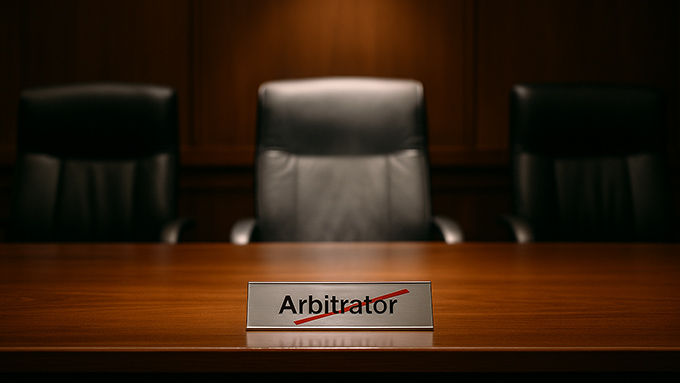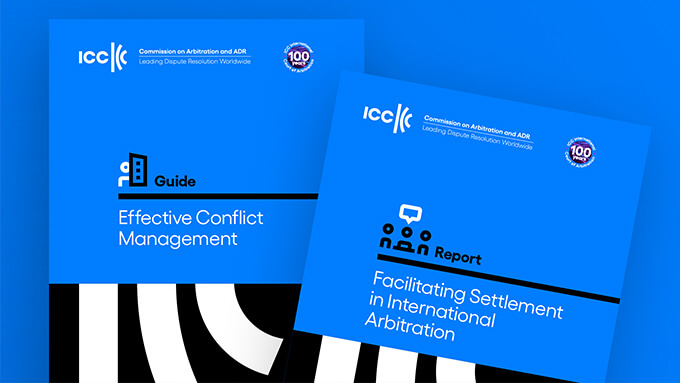Blockchain, Smart Contracts and Arbitration
Introduction
The debate on the impact of technologies growing at a mind-blowing speed in the world of law is increasing day by day. Although blockchain technology has been one of the most talked about technological advancements in recent years, the impact of it on legal processes continues to remain mysterious.
Blockchain is defined as an “open, distributed ledger that can record transactions between two parties efficiently and in a verifiable and permanent way.”[1] As the simplest description, the working principle of a blockchain is based on the concatenation of each transaction or movement as a "block" to the system, so that the platform constantly grows. With each new transaction, the entire system is updated and the transaction becomes visible to the concerned parties anywhere in the world.
Key Features
It is an open platform: In other words, as a rule, anyone can log into the system without any permission or approval. Each user is included in the system with their own unique identifier keys.
It has a decentralized structure: This means that there is no higher authority in terms of implementation or control. The security of the system is ensured not by government regulation and authority, but by encryption methods using algorithms.
Being decentralized also means that there is no need for an intermediary party. For example, the transfer of money to another party is done directly, not with an intermediary institution, as is done in the banking sector.
It is based on the will of users: In other words, everyone involved in the system is in a consensus on the running of the system, in fact, this is basically the functioning principle of the system.
Information security is very important: In the blockchain system, all users are identified on the network with private or publicly available keys. These keys are created with passwords and algorithms. Likewise, the confidentiality of transactions is ensured by these algorithms.[2]
It largely eliminates human error: In fact, this is a conditional feature. If the algorithm design and the code written for its implementation are flawless, human error is eliminated. In other words, the reliability and validity of a transaction depend on the accuracy of the algorithm underlying the transaction. Since each transaction is based on algorithms, which are mathematical models, it is free from human influence and, consequently, human error.
Benefits of Blockchain Technology to Arbitration
As an alternative to classical dispute resolution methods, arbitration aims to be a short and specialized decision-making process. In this regard, the blockchain promises to be an ideal structure for the trial process due to the facts that there is no mechanism requiring approval and control at every stage, and the intermediary institutions are not included in the process. Banks, which are involved as intermediary institutions in legal and financial transactions, can be evaluated as an example in this regard. Costs will arise at every stage of the transactions carried out by banks and credit institutions, and it takes a certain period of time to complete the transactions. The blockchain system aims to proceed more efficiently by removing such institutions from the process.
Moreover, digitizing the arbitration process will undoubtedly drive down costs. Furthermore, in terms of privacy, it is foreseen that blockchain technology will minimize the security risks arising from sharing documents via e-mail and other similar means.[3]
Smart Contracts
Smart contracts can be simply described as "self-executing electronic instructions drafted in computer code."[4] Blockchain arbitration aims to be an efficient decision-making process, especially in relatively small disputes arising from smart contracts.[5]
As explained above, smart contracts are executed with the realization of predetermined conditions. In other words, they can be expressed as “coded instructions that perform an act once an event occurs.”[6] Smart contracts may also be referred to as self-executing contracts, and only specific parts of contracts that can be conditioned and automated can be enforceable.[7] For example, insurance contracts are considered eligible to be issued as smart contracts, because the payment will be made automatically with the realization of the risk determined by the smart contract.[8]
However, there are questions about the scope of the application of smart contracts, because all contracts cannot be designed as if-then statements. Indeed, most contract clauses are interpreted by the principles of contracts law, such as the principle of good faith.[9] Currently, only the obligations of smart contracts that can be executed digitally are binding.
How Arbitration May Work by Blockchain
Above all, there should be an arbitration agreement between the parties so that the arbitration procedure can be initiated with respect to a dispute arising in the execution of a smart contract. This obligation lies at the basis of the classical arbitration practice, and arises from the fact that the arbitration is based on the will of the parties.
When a dispute based on smart contracts arises, the arbitration process takes effect. Due to the nature of the system, the process requires the automation of the procedures and documents. In other words, the process after the appointment of the arbitrator will work as in normal arbitration proceedings, but all transactions will be performed online.[10]
The arbitral award shall surely contain human judgment, as there is no digital authority yet whose legal evaluation has been validated. Therefore, the award should be rendered outside of the blockchain platform. Accordingly, the applicability of the award will be possible through transferring it to the blockchain platform. In this respect, the arbitrator will act as an “oracle” that provides input to fulfill the obligations under the smart contract.[11] "Oracle" enables the blockchain or smart contract to interact with external data, namely, the world outside the blockchain platform.
In a blockchain arbitration, the recognition and execution of the arbitral award by traditional methods bring with it many problems. An important point here is whether an arbitration clause included in the smart contract would violate Article 2 of the 1958 United Nations Convention on the Recognition and Enforcement of Foreign Arbitral Awards (New York Convention) which stipulates an arbitration agreement to be concluded in writing.[12] The Article in question defines the form in the second paragraph, and whether the smart contracts fulfill this written condition is a big question. For this reason, the binding character of an arbitral award is not in a position to be an alternative to the existing legal system and gives rise to many questions.
Conclusion
Many envisage that the blockchain system will enable transactions to be carried out quickly and efficiently. A fast and cost-friendly arbitration is deemed as one of the possible benefits of this technology. However, the risks of the blockchain system should be correctly evaluated. In the current situation, although blockchain technology promises attractive solutions, it is not yet an alternative to classical arbitration, mostly because of enforcement problems. In addition, the operation and procedural aspects of the process are not fully determined and available. The applicable law and competence are other questions regarding the process to be carried out through a blockchain.
Lastly, there is no example world-wide as to the settlement of a dispute arising from smart contracts through arbitration. Institutional arbitration centers have not yet established rules to this end. Therefore, it remains a mystery as to how the process will proceed. On the other hand, in today"s world where adaptation to technology increases exponentially, it is inevitable to discuss the effects of these and similar systems in the world of law.
[1] Iansiti, Marco; Lakhani, Karim R., "The Truth About Blockchain." Harvard Business Review. Harvard University. January, 2017.
[2] Gary L Benton FCIArb, “Beyond the Bubble.” Chartered Institute of Arbitrators (CIArb).
[3] “Blockchain – A Suitable Tool for Arbitration?” (Access date: 28 May 2020).
[4] R. O’Shields, ‘Smart Contracts: Legal Agreements for the Blockchain’ (2017) 21 NC Bank. Inst. 177 at 179.
[5] “Blockchain – A Suitable Tool for Arbitration?” (Access date: 28 May 2020).
[6] “The Rise of Blockchain Arbitration?” Access Date, 23 May 2020.
[7] “The impact of blockchain technologies and smart contracts on dispute resolution: arbitration and court litigation at the crossroads,” Uniform Law Review, Volume 24, Issue 2, June, 2019, pp. 430–448.
[8] “Blockchain – A Suitable Tool for Arbitration?” (Access date: 28 May 2020).
[9] “The impact of blockchain technologies and smart contracts on dispute resolution: arbitration and court litigation at the crossroads,” Uniform Law Review, Volume 24, Issue 2, June, 2019, ss. 430–448.
[10] 2018 In Review: Blockchain Technology and Arbitration, Kluwer Arbitration Blog (Access date: 13 May 2020).
[11] ICC Dispute Resolution Bulletin, Robots Replacing Arbitrators: Smart Contract Arbitration, 2018 Issue 1, p. 30.
[12] ICC Dispute Resolution Bulletin, Robots Replacing Arbitrators: Smart Contract Arbitration, 2018 Issue 1, p. 29.
All rights of this article are reserved. This article may not be used, reproduced, copied, published, distributed, or otherwise disseminated without quotation or Erdem & Erdem Law Firm's written consent. Any content created without citing the resource or Erdem & Erdem Law Firm’s written consent is regularly tracked, and legal action will be taken in case of violation.
Other Contents

Emergency arbitration addresses the need for interim protection before the arbitral tribunal is constituted in institutional arbitrations. Arbitral institutions establish short timeframes to ensure parties can obtain interim relief quickly. For example, the International Chamber of Commerce (“ICC”) requires that the emergency...

International arbitration remains the preferred mechanism for resolving complex cross-border disputes. Yet despite its advantages—neutrality, enforceability, flexibility—arbitration is frequently criticized for being too slow, too expensive, and too procedurally heavy. Often, parties proceed through hearings and...

For arbitral awards rendered in international commercial arbitration to produce legal effects in foreign jurisdictions, they must be subjected to proceedings for “recognition” and “enforcement.” This process is governed by the New York Convention as well as by the provisions of the Law on Private International Law...

Arbitrability, the determination of whether a specific subject matter can be resolved through arbitration, constitutes a fundamental aspect of arbitration within the scope of international commercial dispute resolution. This concept draws a delicate balance between party autonomy—a fundamental principle of arbitration...

The recognition, enforcement, and annulment of foreign court and arbitral awards in Türkiye are processes in which public policy emerges as one of the most critical criteria for review, both in theory and in practice. The Court of Cassation decisions determine the direction of case law regarding the scope and...

As is well known, the action for annulment of objection is a special type of lawsuit regulated under Article 67 of the Turkish Execution and Bankruptcy Law No. 2004 (“EBL”). The primary objective of this action is to nullify a debtor’s objection to execution proceedings. Despite its procedural function of facilitating...

On 16 December 2024, the London Court of International Arbitration (“LCIA”) released its third batch of challenge decisions covering the period from 22 July 2017 to 31 December 2022. The LCIA has also issued a detailed commentary that identifies key legal themes and analytical trends, offering practitioners...

The International Chamber of Commerce (“ICC”) has published its report on the dispute resolution statistics for 2023 (“Report”) , shedding light on the evolving landscape of international arbitration...

Syndicated loans undoubtedly hold a significant position among global financing models. In 2023 alone, 3,655 syndicated loans were provided to companies in the US, with their total value reaching USD 2.4 trillion...

Preliminary attachment refers to the temporary seizure of a debtor's assets to secure a creditor's claim. While it serves as a vital instrument for safeguarding the rights of creditors, it is subject to specific and stringent conditions under Turkish law to prevent any potential misuse...

One of the most important reasons for parties to choose arbitration is the opportunity to freely choose their arbitrators. This freedom granted to the parties also distinguishes arbitration from proceedings before state courts, where the parties are deprived of the power to determine the judges who will conduct the...

The 6th Civil Chamber of the Court of Cassation ruled on October 12, 2022, that national courts have jurisdiction over objections to provisional measures in international arbitration disputes...

The declaration of intent to resolve disputes through arbitration is the fundamental constituent element of an arbitration agreement. To speak of a valid arbitration agreement, the parties' intention to arbitrate must emerge in a way that leaves no room for dispute...

In the wake of the evolving dynamics of commercial transactions, the Netherlands Arbitration Institute Foundation (NAI) announced new arbitration rules . 2024 NAI Arbitration Rules are in force as of 1 March 2024 and will be applicable on proceedings filed on or after this date...

With the global shift to online activities, domain names play a crucial role in identifying businesses. It is more common than ever for a domain name to be registered that is confusingly similar to a trademark or service mark...

The ICC Commission on Arbitration and ADR (“Commission”) published a new guide and report with the aim to increase awareness on alternative dispute resolution (“ADR”) mechanisms to prevent disputes and strengthen the relationship between all stakeholders.The Guide on Effective Conflict Management...

Mergers and Acquisitions (“M&A”) are restructuring of companies or assets through various types of financial transactions, such as mergers, acquisitions, purchase of assets, or management acquisitions. This Newsletter article covers M&A disputes being solved before arbitral tribunals.

In the context of arbitration practice, the principle of revision au fond means that the courts can not examine the merits of a dispute when reviewing an arbitral award. This principle is most commonly encountered in set aside and enforcement proceedings. An arbitral award is evidence of the parties’ willingness...

Under Turkish law, parties may agree on the settlement of disputes that have arisen or may arise, regarding the rights that they can freely dispose of, by arbitration. However, disputes which are not subject to the will of parties, such as the disputes relating to in rem rights of immovables, bankruptcy law...

On 4 September 2020, a research project “Does a Right to a Physical Hearing Exist in International Arbitration?” was launched by an International Council for Commercial Arbitration (“ICCA”) taskforce. Due to the Covid-19 pandemic, many arbitration hearings were held online. Many institutional rules...

Dubai International Arbitration Center amended its Arbitration Rules on 25 February 2022. The 2022 Arbitration Rules were published on 2 March 2022 and came into effect on 21 March 2022. The Rules will be applied to arbitrations that are filed after 21 March 2022; unless parties agree otherwise...

In the aftermath of the Achmea decision, controversies on intra-EU arbitrations continue. Most recently, the Paris Court of Appeal has annulled two arbitral awards rendered against Poland. Meanwhile, the Higher Regional Court of Berlin has refused to declare that an Irish investor’s ICSID claim...


Under Turkish law, the legal remedy that can be applied against arbitral awards is an annulment action. Law on International Arbitration No. 4686 (“IAL”) finds its application area in arbitration proceedings where Turkey is the place of arbitration...

It is well known that following a decision of the Court of Justice of the European Union, problems arose related to arbitration of intra-EU disputes, and particularly arbitration under the Energy Charter Treaty...

Arbitration in corporate law contains controversial elements in many respects, especially the issue of arbitrability. Even in legal systems where these disputes are considered to be arbitrable, uncertainties remain on whether an arbitration clause can be included in the articles of...





Arbitration has benifited from a great increase in the use of technology which has directly effected the conduct of proceedings. More particularly, with digitalization, the way that we conduct arbitration proceedings has been changed to reflect the current needs of parties, with an aim of increasing time...
































































